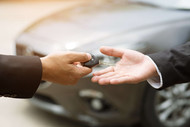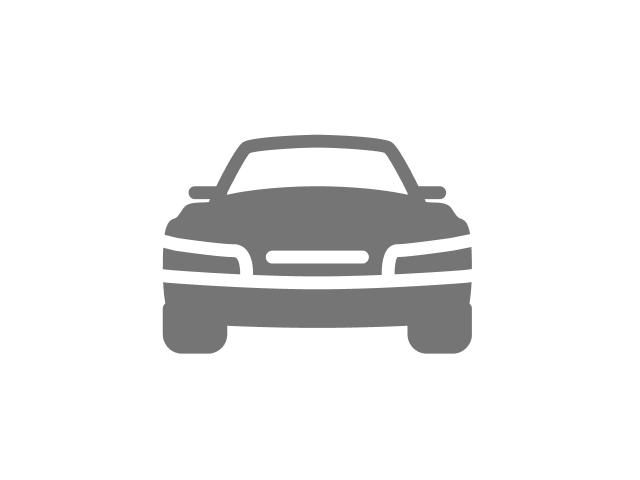For many adults and college-aged teens, alcohol consumption can become a part of their casual lives. At dinner, parties, or nightclubs or bars, alcohol is often used as a way to relax or enhance one's enjoyment. Unfortunately, this casual enjoyment can quickly turn deadly when the person drinking makes the decision to get behind the wheel of a car or other type of vehicle. Driving while drunk is a threat to everyone from newborns to the elderly, regardless of their gender, race, or social standing. Although it is illegal in the U.S., it occurs at alarming rates. According to the Centers for Disease Control and Prevention, 121 million people a year drive while impaired by alcohol. Although drunk driving is dangerous, it is also completely preventable, particularly when everyone makes an effort to keep drunk drivers off of the roads. To successfully accomplish this, people must first fully understand the threat that drunk driving represents, and they must then take action when the opportunity arises to prevent it from occurring.
- Impaired Driving: Get the Facts
- Drinking and Driving Fact Sheet
- Alcohol Awareness: Driving and Alcohol
- Myths and Facts About Alcohol and Driving
- Driving While Impaired: Alcohol and Drugs
- Prevent and Reduce Underage Drinking (PDF)
Drunk driving is dangerous in multiple ways and to everyone. When a person drives while intoxicated, they become a danger to their passengers and the drivers and passengers of any car that travels the road with them. A single drunk driver can cause anything from a minor-fender bender to a massive pileup. Pedestrians on sidewalks are also at risk, as are people riding their bicycles or skateboards. A car driven by an intoxicated driver may even plow into a building such as a home or restaurant or otherwise inflict expensive damage upon private property. Drunk driving accidents can lead to injuries that range from minor to severe. As a result of their recklessness, a drunk driver can cause the loss of limbs, faculties, and even someone's life. Statistically, every 53 minutes, a person loses their life due to an alcohol-related crash in the United States.
In most cases, people who drink do not intentionally set out to harm themselves or others. People may not think that they are too drunk to drive. Often, they do not realize how easy it can be to get drunk or how greatly alcohol affects their ability to operate a vehicle safely. A blood alcohol concentration (BAC) of 0.08 percent is considered the legal limit when it comes to drinking and driving; however, alcohol affects people differently based on things such as body weight, gender, age, the size and alcohol content of the drink, and the presence of food in the stomach. A person can easily become intoxicated well before reaching the legal limit. An average person who drinks two standard-size drinks will have a BAC of 0.02 percent. Although this falls within the legal limit, there are still side effects such as altered mood and some judgment loss. When driving, they may experience difficulty tracking rapid movement and it might be a struggle to perform two tasks at the same time. After three drinks, BAC will have risen to 0.05 percent and they also begin to suffer from impaired judgment, decreased alertness, lowering of their inhibitions, reduced coordination, poor response time, and steering difficulty when driving. By the time a 0.08 percent BAC is reached, which typically takes four average-sized drinks, the person will find it hard to recognize a dangerous situation. Their ability to reason becomes impaired, and they lack concentration and control over how fast they drive. Additionally, their ability to process information is reduced, as is their short-term memory.
- Blood Alcohol Content
- Driving Drunk Can Kill
- Alcohol-Related Accidents
- The Dangers of Drinking and Driving
- Driving Under the Influence
- How Alcohol Affects Safety
- Drunk Driving Fatalities
- How Alcohol Can Affect Safe Driving Skills (PDF)
- Drinking and Driving Don't Mix (PDF)
Friendship can play a large role when it comes to preventing an alcohol-impaired person from driving. Before leaving for a party or other event that is serving alcohol, one person should be named the designated driver. It is this person's responsibility to avoid drinking and to drive each of their intoxicated friends home. If someone encounters a friend who is drunk, they can take the individual home or call a taxi or car service. When hosting a party, offer inebriated guests the opportunity to stay until they are sober, provide them with a ride, or only serve alcohol-free beverages. Taking away someone's car keys is another option; however, it can be problematic if it causes the individual to be angry or violent. If no attempt to stop a drunk friend from getting behind the wheel is successful, it may be necessary to call the police. Although this is a drastic measure to take, it is better than allowing a friend to drive when they are drunk and potentially harm themselves or someone else.
- Hints for Sober, Moderate, and Responsible Alcohol Consumption and Party Hosting
- Strategies for Preventing Drunk Driving
- Tips to Prevent Someone From Driving Drunk
- Strategies for Keeping a Drunk Friend From Driving Home
- Stop Yourself or Stop a Friend
- How to Prevent Someone From Driving Drunk
- What Can You Do to Prevent Drinking and Driving
- How to Keep a Drunk Driver Off the Road
- Drunk Driving Prevention
- Tips to Avoid a Deadly New Year's Risk
- What is the legal BAC limit for driving in the U.S.?
- The legal Blood Alcohol Concentration (BAC) limit for driving in the U.S. is 0.08 percent.
- How does alcohol affect driving abilities?
- Alcohol can impair judgment, decrease alertness, reduce coordination, and slow response time, making it unsafe to drive.
- What are the consequences of drunk driving?
- Drunk driving can lead to accidents resulting in injuries, property damage, and fatalities, affecting not just the driver but everyone on the road.
- What should I do if I'm with someone who's too drunk to drive?
- If you're with a drunk person, you should attempt to find them a safe ride home or call a taxi or rideshare service for them.
- How can friends help prevent drunk driving?
- Friends can help prevent drunk driving by designating a sober driver, taking car keys, or providing alternative transportation options.





